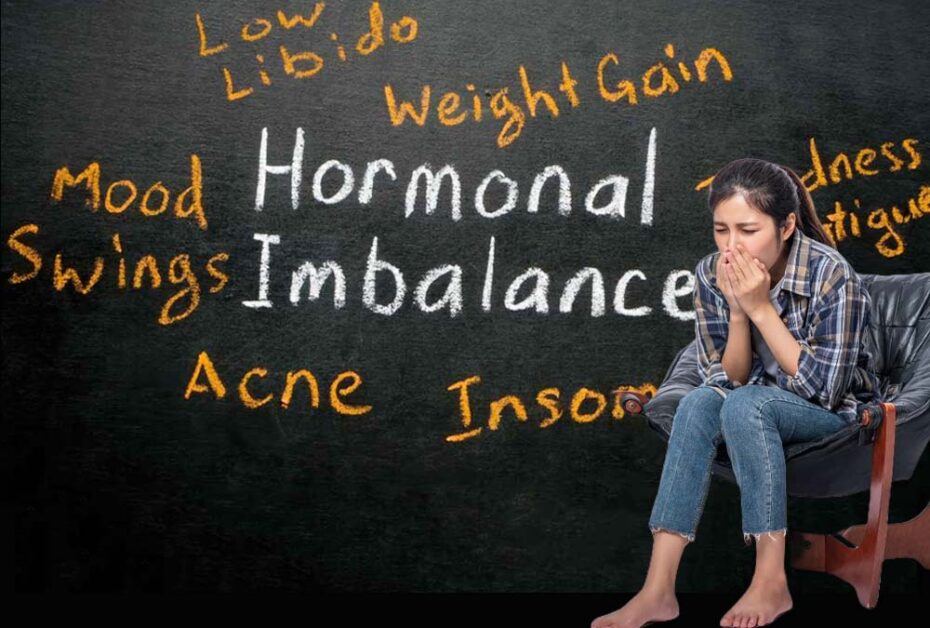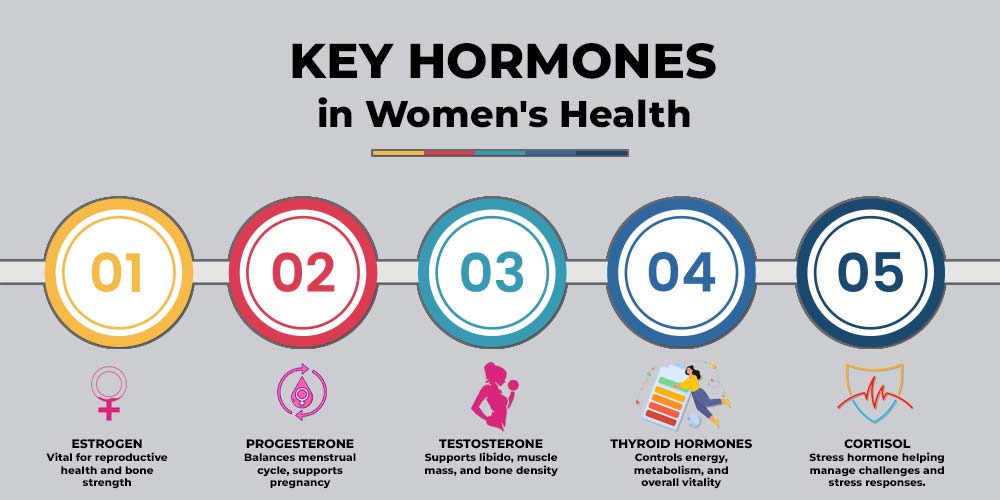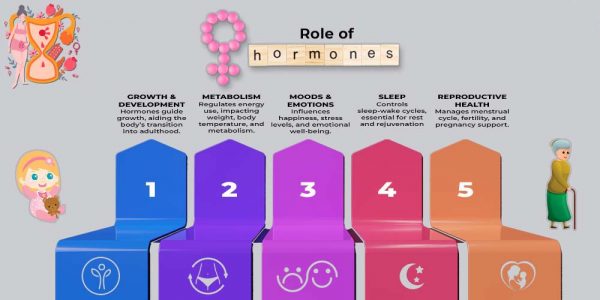Festive Foods & Female Hormones: What Every Woman Should Know?
Every year, the festive season brings sparkle, laughter, and endless plates of sweets. Yet behind the joy, I often see something many women overlook — how festive foods and female hormones silently influence each other. As a gynaecologist, I’ve treated countless women who walk into my clinic after celebrations feeling drained, bloated, or emotionally unsettled.
From my years of experience, I can say these symptoms rarely appear overnight. They build up when sugar, caffeine, lack of sleep, and stress combine to disrupt women’s hormonal balance. The body’s delicate chemistry — insulin, estrogen, and cortisol — reacts to every indulgence and skipped rest.
My goal with this article is simple: to help you understand how festive eating and lifestyle choices affect your hormonal health, and to show practical, science-based ways to restore balance so you can enjoy every celebration feeling truly healthy, inside and out.
Also Read:
- Balancing Celebration and Wellness: The Gynaecologist’s Guide to Festive Nutrition
- Festive Nights, Healthy Mornings: Sleep Care Tips for Women
Understanding the Sugar–Insulin Connection
Festivals and sweets go hand in hand. Yet every extra bite of mithai or sugary drink sends your insulin levels soaring. When this happens often, your body becomes resistant to insulin — leading to weight gain, mood swings, and fatigue.
I’ve observed this especially in women with PCOS or irregular cycles. Even a few days of sugar overload can make their symptoms worse. According to WHO, adults should keep free sugar under 10 percent of total calories — ideally below 5 percent for better health.
In my clinic, I often advise small, practical steps:
- Choose jaggery or fruit-based desserts instead of refined sweets.
- Combine sweets with protein or fibre to slow sugar absorption.
- Walk for ten minutes after meals to improve glucose metabolism.
Takeaway: Festive sweets are meant to be enjoyed, but frequent sugar spikes can upset insulin and overall hormonal balance. Awareness of festive foods and female hormones is important.
How Estrogen Reacts to Festive Foods and Sleep Deprivation
I can say with experience that women underestimate how food and sleep affect estrogen. Fried foods, alcohol, and late nights slow the liver’s ability to process estrogen, which can worsen PMS, bloating, and mood changes.
ICMR research confirms that diets high in trans fats and low in fibre are linked to hormonal irregularities. In my practice, I see this connection clearly every festive season.
Simple swaps that help:
- Add salads, fruits, and whole grains for natural fibre.
- Replace deep-fried snacks with baked or air-fried options.
- Ensure seven hours of quality sleep, even during celebrations.
Lesson: Estrogen thrives on balance — a lighter plate and adequate rest protect both mood and metabolism.
Cortisol: The Stress Hormone You Shouldn’t Ignore
Between cooking, gifting, and hosting, women often forget themselves. I’ve seen countless patients who come in after festivals with fatigue, poor sleep, and irregular cycles — all linked to elevated cortisol.
Cortisol helps us manage short-term stress, but chronic overload disturbs progesterone and estrogen production. That’s why your mood or periods might feel “off” even after the festivities end.
I personally follow and recommend these stress-balancing rituals:
- Get at least seven hours of sleep.
- Start the day with five minutes of deep breathing.
- Stay hydrated and limit caffeine or alcohol.
Practical Note: Managing stress is not indulgence; it’s hormone care. A calm mind keeps your cycles more regular and energy levels stable.
Foods That Support Hormonal Stability
My practice allows me to say confidently that food is powerful medicine. During festivals, smart choices can nourish hormones rather than disrupt them.
Here are my favourite hormone-supportive foods:
- Nuts and Seeds: Almonds, walnuts, flaxseed, and pumpkin seeds help balance estrogen.
- Whole Grains: Brown rice, quinoa, and millets prevent sugar crashes.
- Fruits and Vegetables: Colourful produce protects against oxidative stress. Magnesium remains one of the most overlooked minerals.
- Water and Herbal Teas: Hydration supports liver detoxification and hormone metabolism.
The goal is not to deny yourself festive flavours but to balance indulgence with nourishment. Even simple swaps — baking instead of frying, or using jaggery instead of sugar — can make a meaningful difference.
Key Insight: Balanced eating during festivals can actually strengthen your hormones, not weaken them.
The Role of Protein in Hormone Health
Many women forget about protein during celebrations. Yet, it is essential for hormone synthesis, metabolism, and muscle strength. Low-protein diets can leave you feeling tired and sluggish.
I often advise including protein in every meal through paneer, lentils, eggs, or fish. It helps regulate blood sugar and supports thyroid and adrenal health.
Easy ways to include protein:
- Add a handful of roasted chickpeas between meals.
- Choose curd or yoghurt-based desserts with nuts.
- Combine grains with lentils for complete proteins.
Looking Ahead: A little planning ensures your festive meals keep you energised and hormonally balanced.
Caffeine and Alcohol: Double Trouble for Hormones
I’ve seen many women struggle with fatigue and mood swings after a week of festive coffee, tea, and drinks. Caffeine and alcohol both elevate cortisol and disturb estrogen metabolism.
Research shows that excessive caffeine can delay ovulation and worsen PMS, while alcohol burdens the liver — the organ responsible for clearing excess hormones.
My advice: enjoy in moderation, hydrate well, and prioritise rest.
- Avoid caffeine after 4 pm.
- Alternate alcoholic beverages with water.
- Eat a light meal before bed to support detoxification.
Takeaway: Celebrate mindfully — every cup or glass should come with balance and hydration.
Smart Festive Eating Tips for Women
Through years of guiding patients, I’ve learned that small consistent habits work better than strict rules.
Here’s what I personally follow and recommend:
- Eat a light snack before parties.
- Limit desserts to one small serving per day.
- Drink water between meals to reduce cravings.
- Include salads or fruits to balance heavy dishes.
- Protect your sleep — it’s the body’s natural reset.
During festivals, nutrient sequencing helps balance indulgence by starting meals with fibre and protein before sweets, stabilising blood sugar and hormones naturally.
Lesson: Sustainable routines, not restrictions, are the real secret to hormone harmony.
Understanding Diet–Hormone Interactions
Every food choice sends a message to your hormones. I remind my patients that they’re not just eating calories — they’re communicating with their bodies.
Nutrient-dense meals keep hormones working smoothly, while refined sugars and trans fats confuse this messaging system. WHO data supports this: balanced diets reduce both metabolic and reproductive disorders.
Key Point: What you eat shapes how your hormones behave. Choose foods that help them work for you, not against you.
When to Seek Medical Advice
If you notice irregular cycles, prolonged PMS, or low energy even after the festive season, don’t ignore it. These may be early signs of hormonal imbalance, PCOS, or thyroid dysfunction.
In my practice, I encourage women to track their cycles, sleep, and moods. It’s an empowering way to understand your body and spot patterns early.
Also Read:
- Fueling Your Body and Your Baby: A Guide to Second Trimester Nutrition
- Healthy Eating Tips: Nourishing Pregnancy During Festivals
FAQs: Festive Doods and Female Hormones
Q: Can festive sweets affect my menstrual cycle?
A: Yes festive foods and female hormones are related. Excess sugar and stress can delay or intensify menstrual symptoms by disturbing insulin and estrogen balance.
Q: How can I reduce post-festival bloating?
A: Stay hydrated, eat more fibre, and avoid processed snacks for a few days.
Q: What helps most with festive fatigue?
A: Herbal teas like chamomile or spearmint soothe cortisol and support gentle detoxification.
Your Hormone Health Trio: Balance, Hydration, and Sleep
From my years of clinical practice, I’ve learned that hormones respond best to care, not chaos. Festive foods and female hormones can coexist beautifully when we honour the basics — balance, hydration, and rest.

Eating mindfully helps regulate insulin; drinking enough water supports estrogen health; and quality sleep keeps cortisol in check. These simple steps restore women’s hormonal balance naturally, even during busy celebrations.
So this festive season, enjoy your favourite sweets, cherish family moments, and give your body the stability it deserves. True celebration begins when your health and happiness are in harmony.
Our Digital Imprints:
Dr. Madhu Goel
Senior Consultant Obstetrician and Gynaecologist
Director, Fortis La Femme
I am passionate about women’s health. With expertise in managing high-risk pregnancies, infertility, and various gynaecological issues, I strive to provide compassionate care. I am committed to ensuring the well-being of my patients. Follow me for insights and updates on women’s health.
Get Connected to my Newsletter
“Health Hub”: Women’s Health & Wellness
Connect with me: Instagram | Facebook | LinkedIn









